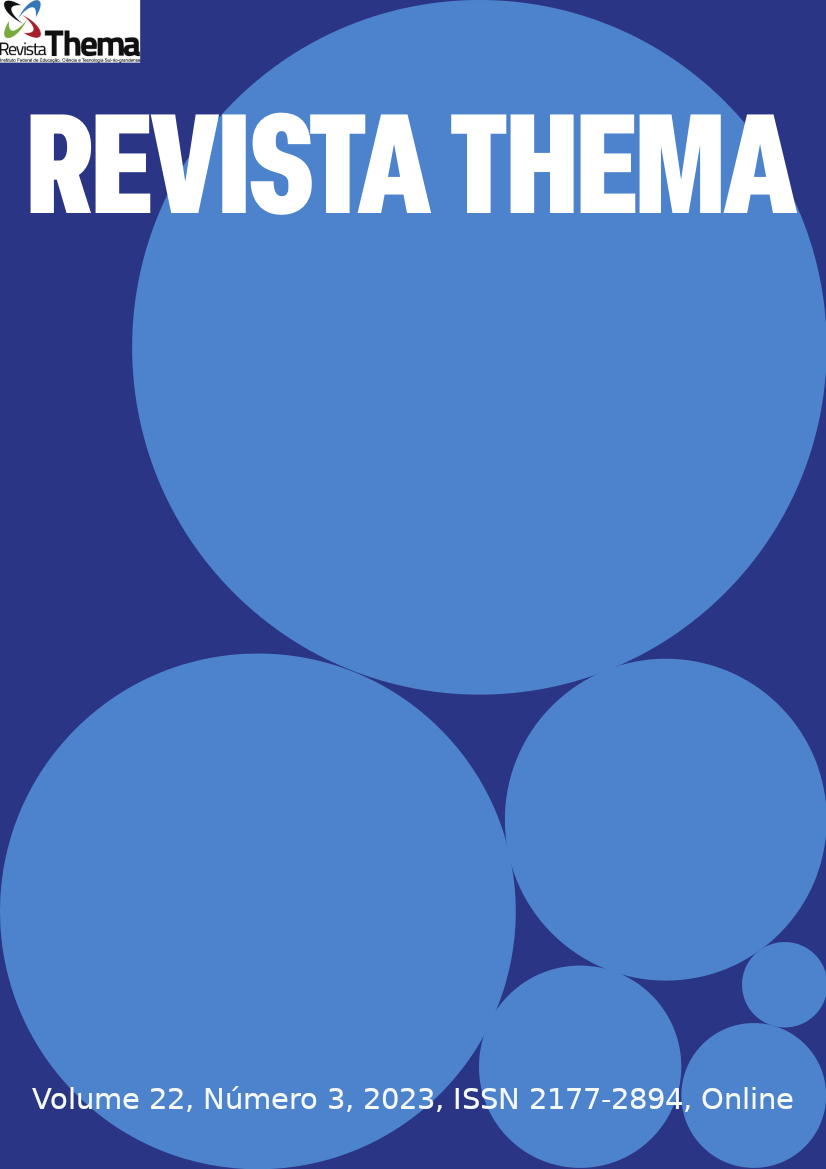IFSul Science and Technology Meeting
an analysis through the social network perspective
DOI:
https://doi.org/10.15536/thema.V22.2023.827-841.2909Keywords:
graph, scientific collaboration, scientific divulgation, campanha regiongraph, Campanha regionAbstract
Teaching, research, and extension are the three elementary pillars of higher education. From an extension perspective, scientific events are fundamental instruments for disseminating and popularizing science and knowledge. The IFSul Science and Technology Meeting (ENCIF), Campus Bagé, aims to publicize research of its academic community and that of municipal, state, and private schools and universities, in addition to the external community. In order to identify the main authors and co-authorship networks that have shaped the history of that event, documentary research was carried out on the Proceedings of the event editions that are available in public archives. The Social Network Analysis strategy was applied to the data collected, identifying authors and co-authoring communities that have contributed most to ENCIF´s consolidation. It has also revealed the importance of other institutions in the region as participants in the event and as promoters of scientific development in the Campanha region. It is hoped that this study will help improve ENCIF's dissemination policies and thus increase its reach in the region.
Downloads
Downloads
Published
How to Cite
Issue
Section
License
O autor responsável pela submissão representa todos os autores do trabalho e, ao enviar o artigo para a revista, está garantindo que tem a permissão de todos para fazê-lo. Da mesma forma, assegura que o artigo não viola direitos autorais e que não há plágio no trabalho. A revista não se responsabiliza pelas opiniões emitidas.
A Revista Thema é de acesso aberto (Open Access), sem que haja a necessidade de pagamentos de taxas, seja para submissão ou processamento dos artigos. A revista adota a definição da Budapest Open Access Initiative (BOAI), ou seja, os usuários possuem o direito de ler, baixar, copiar, distribuir, imprimir, buscar e fazer links diretos para os textos completos dos artigos nela publicados.
Todos os artigos são publicados com a licença Creative Commons Atribuição-NãoComercial 4.0 Internacional. Os autores mantém os direitos autorais sobre suas produções, devendo ser contatados diretamente se houver interesse em uso comercial dos trabalhos.





